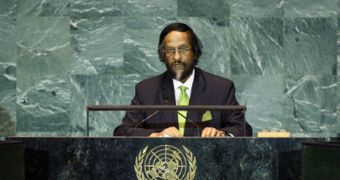In the third morning of the 2009 UN Climate Summit on the issue of global warming, analysts revealed that a large split appeared between developing nations. While some of them think that a legally binding deal tougher than the 1997 Kyoto Protocol should be set in place, richer, developing states such as China oppose such measures, saying that they would curb their economic growth. This type of situations has never been met before, as countries of this group, which also includes some of the poor African countries, tend to stick together, and agree with decisions in block, the BBC News reports.
Ian Fry, the negotiator for the country Tuvalu, asked and obtained a suspension of the talks on this matter until the issue could be resolved. “My prime minister and many other heads of state have the clear intention of coming to Copenhagen to sign on to a legally binding deal. Tuvalu is one of the most vulnerable countries in the world to climate change, and our future rests on the outcome of this meeting,” the representative says. On the other hand, China too suffers from effects of global warming such as an increased desertification and decreased water supplies, but refuses to acknowledge the problem.
The Tuvalu call was supported by some of the states that stood to lose most if the effects of climate change were not mitigated – the Association of Small Island States (AOSIS), including the Cook Islands, Barbados and Fiji, and also some African countries that are extremely poor, such as Sierra Leone, Senegal and Cape Verde. These nations want the CO2 levels in the atmosphere to be stabilized to 350 parts per million (ppm), rather than the 450 ppm that the international community seems willing to discuss.
This would translate into a 1.5-degree Celsius temperature increase, rather than a 2-degree one. China, India and South Africa were among the countries that opposed the proposal, saying that the existing regulations were enough. They are actually afraid that such actions will reduce their economic growth, and again place them in the shadow of the developed world, which is largely responsible for the current situation in any case. “The main task of this (conference) is to adapt an agreed outcome from the Bali Action Plan [agreed in 2007] and we should very much focus on that. We have a very valid system to combat climate change,” Su Wei, who is China's lead negotiator, says.

 14 DAY TRIAL //
14 DAY TRIAL //